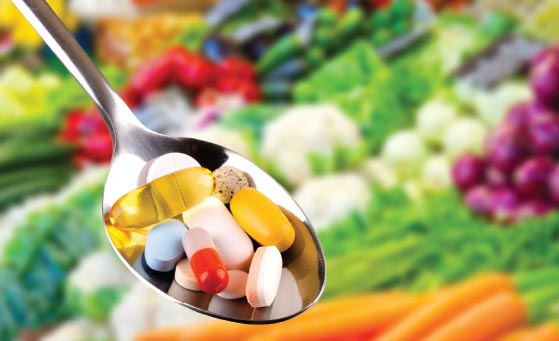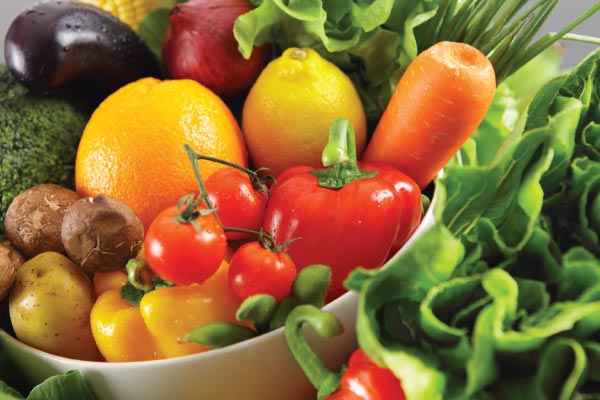To pop or not to pop these colourful little pills lining the shelves of pharmacies is a pertinent question these days. Behnaz Sanjana attempts to find out the facts.
They are touted to boost, promote, reduce or prevent something or other in you. But does the big deal about supplemental vitamins and minerals just boil down to clever marketing gimmicks by big pharmaceuticals?
Thought to be the way to great health and longevity, supplements have become a raging fad in the last decade. While the myriad health websites and experts advocate some capsule or the other as your doorway to an illness-free life, what are we to believe? Recent evidence points in the too-good-to-be-true direction for some common supplements that we swallow with fervour. But health practitioners argue that there are vitamins and minerals that our diet under-supplies, that are essential for a healthy body and mind. So which supplements are the must-haves and which can we nix?
All it takes is a little common sense and a lot of research to find the answer to that question.

WTM gets you started:
Vitamin A
Source: Oily fish, liver, carrots, spinach, milk and its products and eggs
This vitamin helps the immune system function optimally and also helps keep vision strong and skin glowing.
Men typically need 0.7mg a day and women 0.6mg a day. But it’s easy to overdo the dosage. Liver is chock full of vitamin A. So go easy on the liver pâté — once a week is all right.
More than 1.5mg a day over a long run can causes weakened bones. Large amounts of vitamin A can also harm a foetus.
You should be able to get all the vitamin A you need by eating a varied and balanced diet.
Verdict: Ditch It.
B Vitamins
Source: A healthy, balanced diet that comprises whole grains, nuts, leafy greens, a variety of vegetables, eggs, beans, meat and seafood.
There are a number B Vitamins – thiamin (B1), riboflavin (B2), niacin (B3), B6, biotin (B7), B12 and folic acid (folate).
Together, they keep the body running smoothly, convert food into energy, ensure healthy skin and hair and prevent memory loss, among a host of other functions. Chances are that the average healthy person gets enough of these vitamins from what they ingest throughout the day.
Verdict: Vegetarians should consider taking a B12 supplement as it is only available from animal sources, though it can be found in products such as fortified cereals and plant milks. Pregnant women must compulsorily take folic acid to prevent serious birth defects in the foetus.
Vitamin C
Source: Citrus fruits, broccoli, red and green peppers, tomatoes, peas, Brussels sprouts, potatoes.
This vitamin protects cells and keeps them healthy, maintains skin, blood vessels, bones and cartilage, as well as helping in healing wounds. Adults need 40mg a day.
This was supposedly the magic pill that can prevent and cure colds, but the medical moguls have proclaimed that’s hogwash. Also, our body cannot store excess vitamin C, so most of it flushes out in the toilet, along with our hard-earned dinars. Vitamin C obtained from natural edibles will serve you well.
Verdict: Ditch it.
Vitamin D
Sources: Sunlight, very small amounts in oily fish, egg yolks, red meat and liver.
Vitamin D helps regulate the amount of calcium and phosphate in the body to keep bones, teeth and muscles healthy. A deficiency can lead to bone deformities in children and pain in adults.
Not having enough of this vitamin can lead to a host of health problems – physical and mental. Experts recommend that those who stay out of the sun take an additional supplement.
Verdict: Worth it.

Vitamin E
Sources: In a wide variety of foods
Recommended dosage is 4mg a day for men and 3mg a day for women. It is an antioxidant, protecting cells from the damage caused by free radicals (compounds formed when our bodies convert food into energy and also from cigarette smoke, air pollution and ultraviolet light from the sun). It boosts the immune system and maintains healthy skin and eyes.
An overdose can have several minor and serious repercussions. The fact that it is available abundantly means we do not need to supplement our diets with more of it.
Verdict: Ditch It.
Calcium
Sources: Milk and dairy products, broccoli, cabbage and okra, soya, tofu, nuts and fish bones.
Calcium helps build strong bones and teeth, regulates muscle contractions, including the heartbeat, and ensures that blood clots normally.
An average adult needs 700mg of calcium a day. Although enough can be obtained from a good diet, practically speaking there’s only so much cheese and broccoli you can eat. It may be wise for women to start supplementing calcium combined with vitamin D for better absorption to keep up bone density. However, more than 1,500mg per day can be harmful.
Verdict: Worth it for women.
Iron
Sources: Dark green leafy vegetables, meat, beans, whole grains, dried fruit.
This metal is vital for healthy red blood cells carrying oxygen around the body. Supplementation is necessary for those who have anaemia and heavy periods and also recommended for vegetarians.
However, taking an iron supplement can cause constipation and, in the long term, poisoning – resulting in brain damage or death, so only people with a proven deficiency should take a supplement. Adult males need 8.7mg a day, while women need 14.8mg a day.
Verdict: Ditch it unless the doctor says otherwise.
Main reference: www.nhs.uk





































